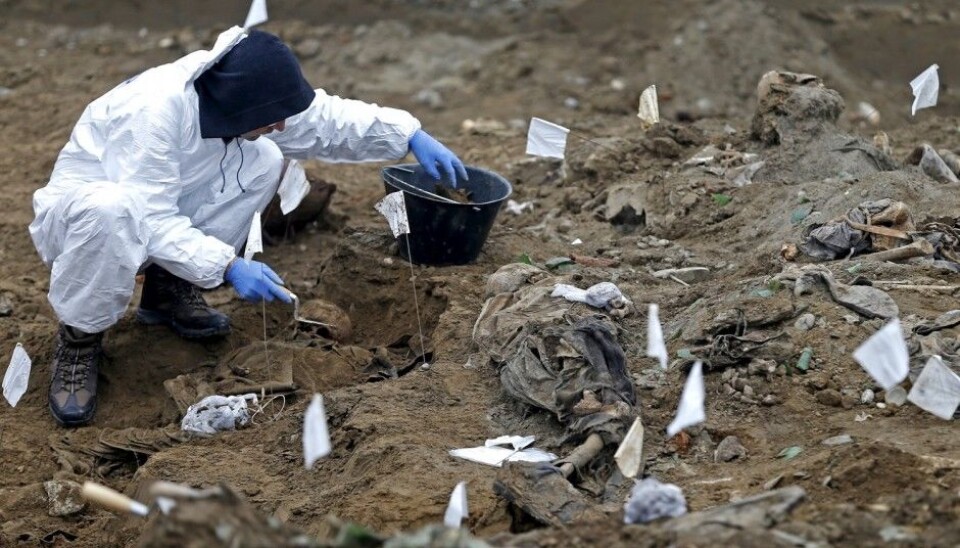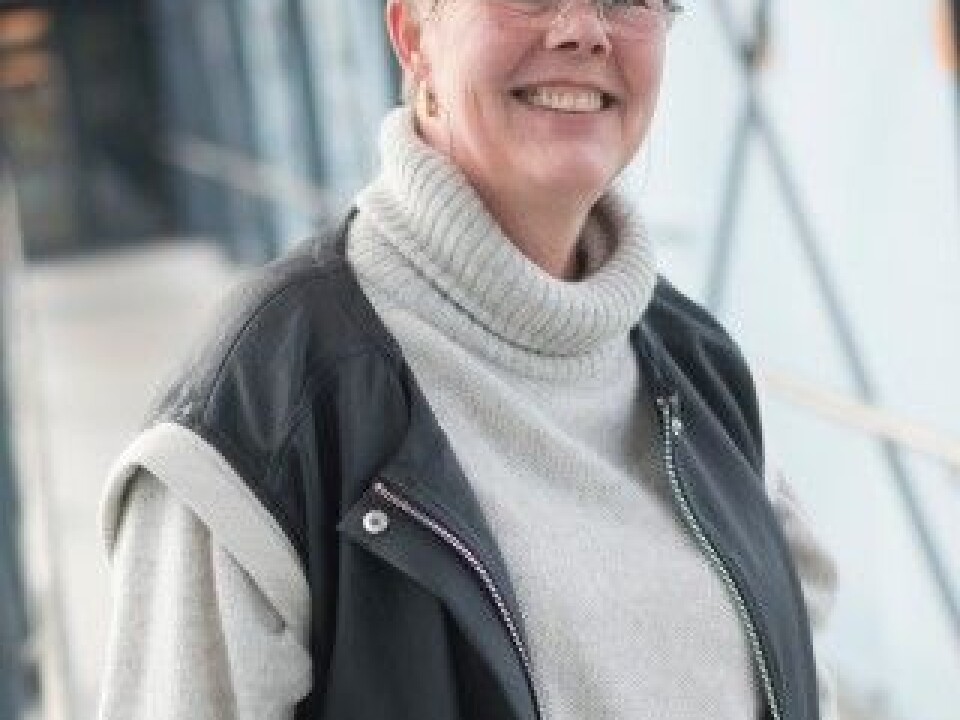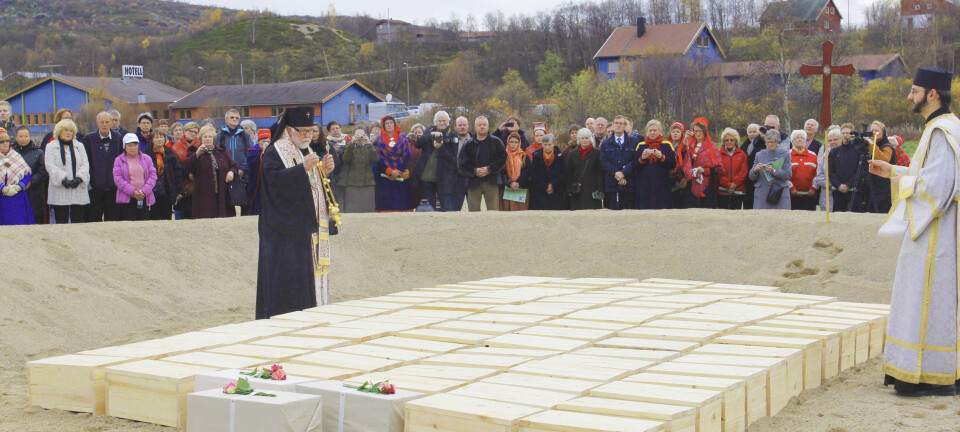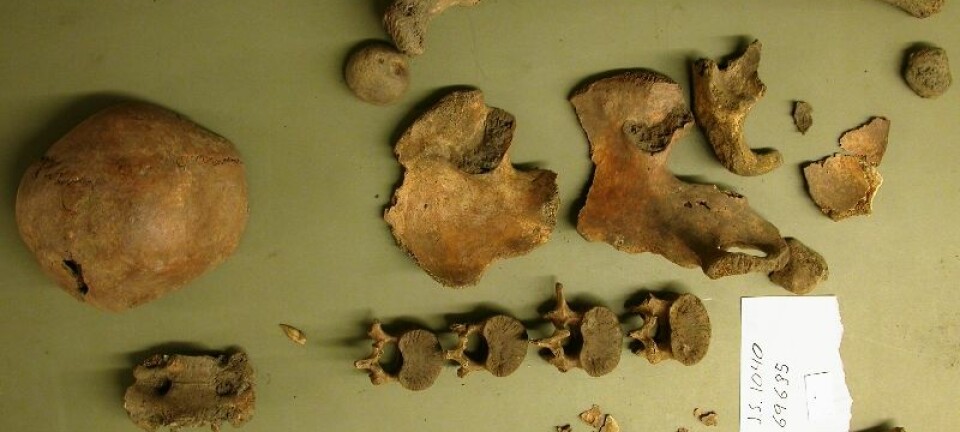This article was produced and financed by University of Stavanger

Investigating mass graves can build trust
Violence ended in the former Yugoslavia, the conflicts did not. Forensic investigations of mass graves can help to reconcile enemies.
"The key is to treat all victims equally, regardless of whose side they were on in the conflict. This builds trust, which is essential to societal safety", says archaeologist Kirsten Voight Juhl of the University of Stavanger.
She has herself participated in forensic investigations of mass graves in Bosnia and Herzegovina. Understanding what these investigations entail forms the basis of her PhD work at UiS on risk management and societal safety.
Juhl has examined forensic investigations of mass graves as a social phenomenon, the aim of which is to rectify atrocities committed during violent conflicts, as well as reconciling the various groups after the conflict.
"Violent conflicts are social disasters which fundamentally change the trust relationships in society. Trust is easy to lose, but takes a long time to rebuild", she says.
Bloody and complicated

The war in Bosnia-Herzegovina from 1992 to 1995 was the bloodiest and most complicated of the wars fought at the dissolution of the former Yugoslavia.
The war claimed the lives of more than 100,000 people, 40 percent of which were civilians and about 4 percent non-combatants, including prisoners of war. Genocide, crimes against humanity, war crimes and gross violations of human rights were committed on a large scale and by all parties.
As early as 1993, this led to the establishment of the International Criminal Tribunal for the former Yugoslavia (ICTY).
"By the end of the war, 31,500 people were missing. This amounted to almost 30 percent of the fatalities. That tells you something about the problem society was facing”.
Against this backdrop, the parties of the conflict were to rebuild their trust in each other and in the authorities. How could that be made possible"?
Social trap
To find the answer to this question, Juhl has examined how the manner of which mass grave investigations are handled has played a role in rebuilding trust.
She has been looking at the process of adopting a domestic Law on Missing Persons, passed in 2004 in Bosnia and Herzegovina, and of establishing a Missing Persons Institute at state-level. The Institute was formally established in 2005, but began to operate only in 2008 – thirteen years after peace was declared.
Until then, ethnic-based missing persons commissions searched only for 'their own' missing persons. One commission – in the political entity of the State of Bosnia and Herzegovina called the Federation of Bosnia and Herzegovina – searched only for Bosnian Croats and Bosnian Muslims (Bosniacs), while the other commission – in the Republika Srpska entity – searched only for Bosnian Serbs.
"The commissions thus perpetuated the polarisation and distrust created between the groups by the war. To maintain ethnic differences however poses a serious threat to future societal safety", explains the researcher.
"They had become entangled in a ‘social trap’. No one cooperated, since no one trusted that the 'other side' would also cooperate. Experience had taught them that the 'other side' could not be trusted".
A way out
"The system needed to change from investigations based on ethnicity to investigations based on international humanitarian law and the human rights", says Juhl.
"This enabled the authorities to demonstrate that all of the war's victims were of equal worth. This was a vital step that has helped to build trust".
Among other sources, Juhl has based her research on interviews with key representatives of the authorities responsible for investigating the mass graves, and key representatives of the families of missing persons.
Right to know
The ICTY investigated mass graves with the aim of securing evidence for the trials, to which end the individual identities of the victims was not essential.
The process of identifying the individual victims has instead been driven by the International Commission on Missing Persons (ICMP), which was established in 1996. The organisation developed a unique, cost-efficient, high-certainty method of analysing and matching DNA from bones to the DNA of living relatives.
International humanitarian law gives the families of the missing persons the right to know the fate and whereabouts of their loved ones. This right is furthermore defined by the UN as a human right.
When the Law on Missing Persons was passed in 2004, it was a result of strong pressure from the relatives. The domestic law gave the families rights that transcended the rights of international law. Among other things, it meant that the search for a missing person whose body had not been found would not be terminated even if that person was legally proclaimed dead.
"Families needed this legal proclamation in order to be able to claim social and financial rights, such as inheritance, property transfers, life insurance, and social benefits, for instance sole provider benefit.
"The law was an important step forward towards building trust in the authorities. Same treatment applies, regardless of background – who they are and what they have done does not matter. It is that simple – and that difficult", says Juhl.
She explains: "It is one thing to acknowledge the rights of people with whom one sympathises. Towards people to whom one is not sympathetic, it becomes much harder. It is however crucial to the societal safety that a state protects the rights of all members of society".
Trust creates societal safety
"Social trust is critical to societal safety. The population has to be able to trust that social functions and systems work. Authorities who are not trusted – or who do not deserve the trust they are granted – will not be not able to build trust between different groups in society or between people in general", explains Juhl.
Contempt for politicians
So what is the state of the trust relationships in Bosnia and Herzegovina now, 20 years after the war?
"Trust in the police, the health services, courts and other executive authorities is quite high, but there is widespread distrust of the legislative agencies – a strong contempt for politicians", says Juhl.
She tells of widespread corruption, 60 percent unemployment among young people, and of 20 percent of the population living below the poverty line.
"These are the problems that concern people. Ethnic differences are less important", says Juhl.
She refers to a survey, which revealed that 96 percent of the population believe the search for missing persons should not be based on ethnicity or religion. The same survey found that 85 percent support joint memorials for all missing persons of the war.
"Three quarters also believe that the authorities actually work towards fulfilling the right to know what happened to the missing persons, and that this contributes to reconciliation and a better future for the country", says Juhl.
31,500 people were missing at the end of the war. Approximately 23,000 are now found and identified.
"This is unprecedented, and has become best practice for other countries around the world with the same problem", says Kirsten Voigt Juhl.
Source:
Kirsten Juhl: Societal Safety, Trust and the investigation of Modern Mass Graves. Doctoral thesis, the Faculty of Social Science at the University of Stavanger, 2015.
































